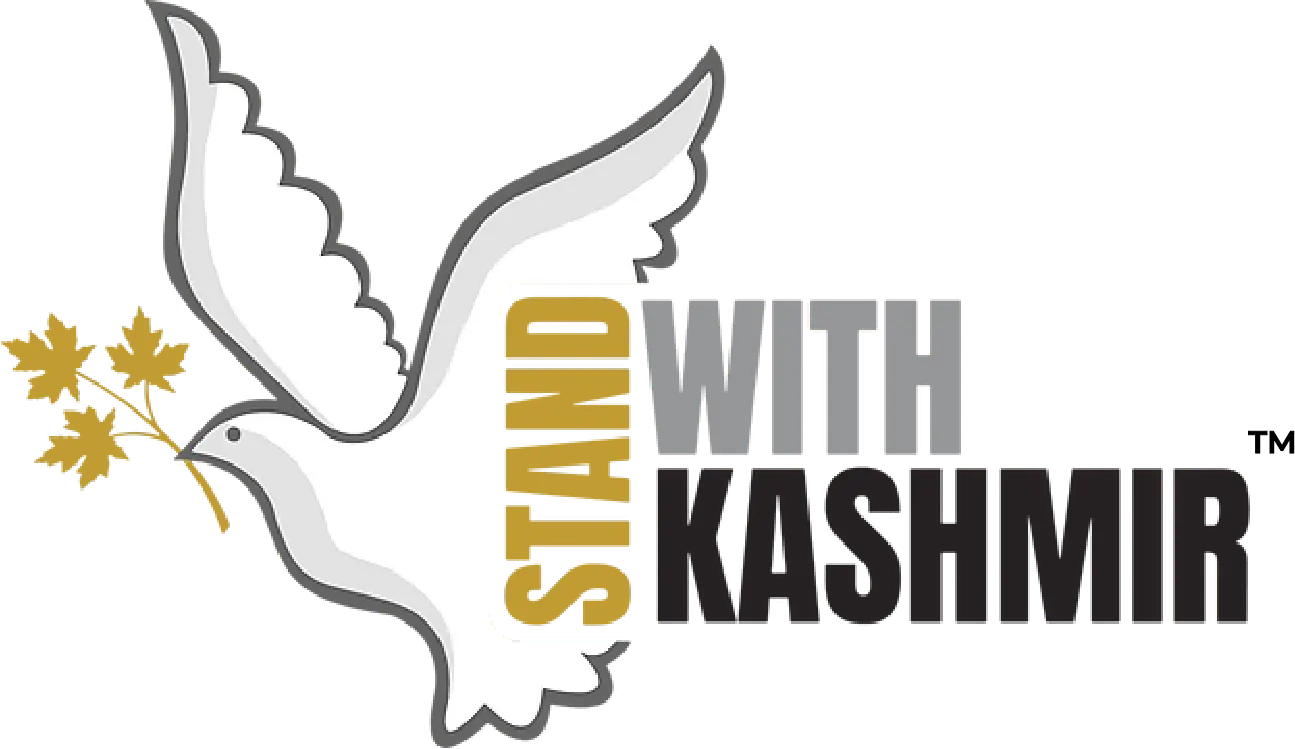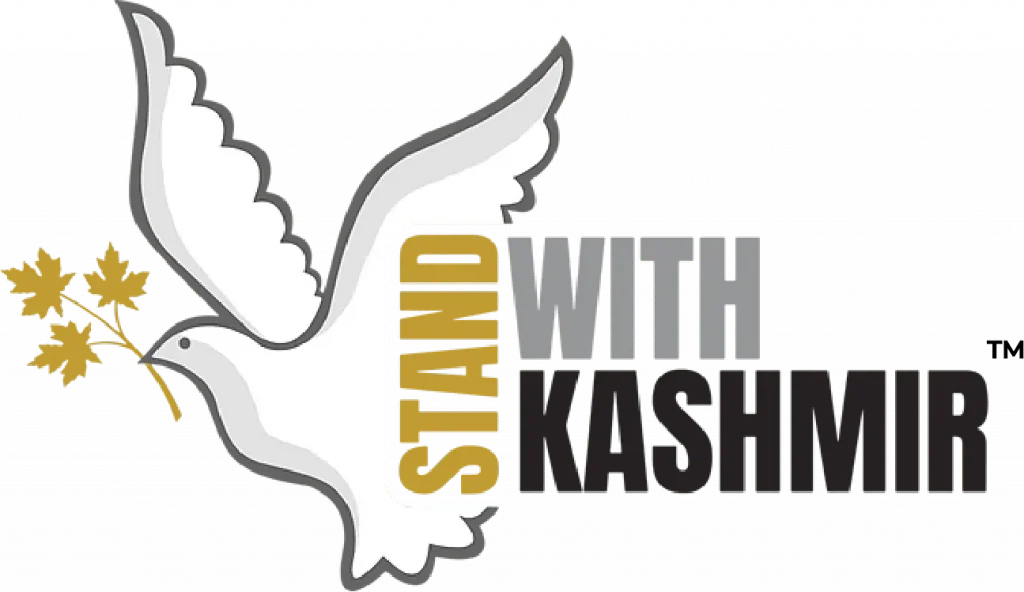StandWithKashmir’s policy statements for the right to self-determination are based on a vision of justice that is grounded in securing Kashmiris’ political, economic, and social rights. We envision a Kashmir where all of its inhabitants can live peacefully in true azadi (freedom from occupation).
OUR DEMANDS
Our Demands
We also recognize that restrictions of these rights are fundamental to India’s control and occupation of Kashmir, and for these demands to be met, that occupation must itself be dismantled.
The implementation of these demands requires good-faith, international involvement, supervision, monitoring, reporting and guarantees to ensure full and proper implementation.
These measures do not presume a particular outcome of any political settlement of the territories considered under dispute in international law; any such settlement would require truth, justice and reconciliation, an opportunity at free, fair and full deliberations among all constituent groups and regions and sub-regions and an effective democratic process.
Kashmiris have a fundamental right to self-determination. Kashmiris must be included in a free and fair process, held under international supervision, whereby they are able to express their political will and live with dignity. They have the right to preserve and express their language, culture, heritage, and peoplehood. Kashmiris must be able to speak for themselves and lead the conversation in regards to their future.
We acknowledge that India is of prime concern when it comes to militarization, aggression, and intransigence in the region. It’s complete annexation has foreclosed the possibilities of a dialogue or a resolution, making the region extremely volatile. We ask for complete demilitarization, including the closure of military bases and installations, and removal of military and paramilitary personnel from the entire state of Jammu & Kashmir as it existed in 1947. We urge an immediate undertaking of demining operations along either side of Line-of-Control (LoC) under the supervision of United Nations observers.
All forms of resistance and dissent in Kashmir are equated with “terrorism” which has made civil resistance impossible. India must end all communications restrictions in occupied Kashmir, and restore permanent access to all means of communications, including landline and mobile telephones, broadband internet, and fully functional mobile internet. It must guarantee that communications will no longer be subject to interruption and ensure the right to privacy and freedom from interference in peoples’ homes and communications. India must ensure freedom of movement and lift all de jure and de facto curfews.
People must have the right to move freely within Kashmir, as well as move into and out of Kashmir, including from across the LoC, without restriction. The people of Kashmir must be allowed access to legal and valid travel documents.
Kashmiris must have the free and full exercise of the freedoms of expression, belief, assembly, association, and movement. All bans on political, social, and religious groups must be revoked. Kashmiris must be allowed to peacefully gather and protest to resist their oppression. Journalists, civil society activists, and human rights defenders have the right to perform their work without interference or fear of reprisals. Kashmiris on both sides of the LoC must be allowed to freely assemble, communicate, express themselves and discuss their political future.
India must halt any process that will facilitate or result in a political reorganization of occupied Kashmir and threaten the right to self-determination, including:
-
Passing laws that cause demographic change, mass displacements, and residency revocations;
-
Facilitating land transfers to corporations, trusts and non-Kashmiris;
-
Continued extraction and exploitation of natural resources;
-
Building settlements intended to encourage mass flooding of non-Kashmiris leading to erosion of economic, educational, and property privileges and rights of Kashmiris.
Kashmiris have the right to their land, forests, and natural resources and must have full say over their usage. Any immovable property given to non-state subjects must be restored. Those historic inhabitants who have been forced to leave or displaced must be allowed to return safely and freely and to claim their properties.
Kashmiris have a right to live in dignity, without any fear, persecution, insult or intimidation. India must release all political prisoners, prisoners of conscience, and extrajudicial detainees without any condition, limitation or consequence. India must stop enforcing all laws that facilitate political repression or state violence or are inconsistent with international legal norms or human, civil or political rights, including the Armed Forces Special Powers Act, Jammu & Kashmir Public Safety Act, the Unlawful Activities (Prevention) Act, and Section 144 of India’s Code of Criminal Procedure. India must stop all human rights violations, war crimes, and crimes against humanity against the people of Kashmir, including enforced disappearances, extrajudicial killings, sexual violence, torture, arbitrary detention, surveillance, human shields, destruction of property, use of pellet guns, amongst others. India must return the bodies of Kashmiri rebels and civilians that have been killed to their families.
The international community must ensure that Kashmiris be given access to healthcare, medicines, medical supplies and emergency services. Doctors have the right to treat any and all who require medical attention, including the victims of Indian state’s military operations, without interference or fear of reprisals. Local humanitarian and international aid organizations must be allowed to conduct relief work without any interruptions. Kashmiris must be allowed to work and have food and economic security. Kashmiris must be allowed to have access to education and educational institutions. Women’s rights must be respected. The rights of religious, social and ethnic minorities must be protected.
Independent human rights observers, civil society groups, political officials and foreign journalists must be given unrestricted entry into Kashmir. There must be a full, complete, and impartial investigation through the creation of a UN Commission of Inquiry of all alleged instances of human, civil, and political rights violations; and the appointment of a UN Special Rapporteur with the mandate to investigate and report on human rights violations, war crimes, and crimes against humanity in Kashmir. All victims of such violations must be rehabilitated. Kashmiris must receive reparations for the violations of their human, civil and political rights and the uncompensated or insufficiently compensated utilization of their resources.
©2025 StandWithKashmir All rights reserved. SWK is a 501(c)(3) non-for-profit organization.

